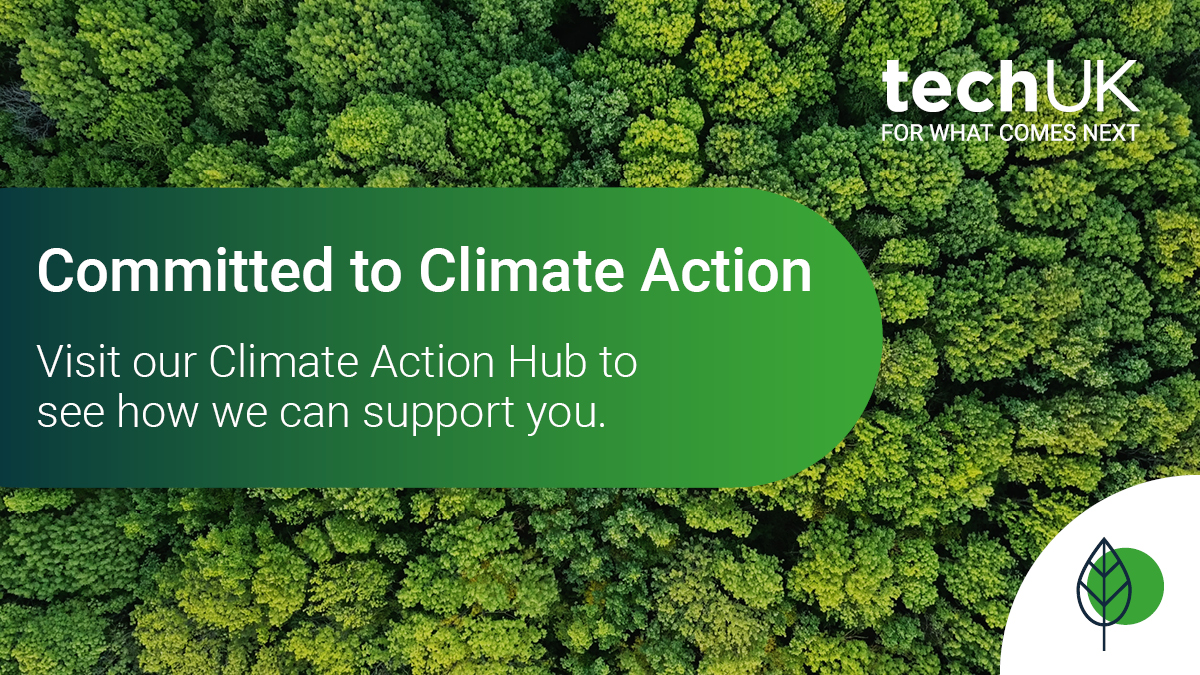How tech marketers can reduce their own impact on the environment (Guest blog from Hotwire)
It’s been an interesting few months in the world of sustainability. ESG (environment, social and governance) ended 2021 as one of the most talked about topics in corporate rhetoric. Yet earlier this year, it was de-prioritised in terms of shareholder initiatives by Blackrock and even branded as a “scam” by Elon Musk. Even the head of responsible investing at HSBC Asset Management, Stuart Kirk, has been suspended for publicly complaining about the regularity with which “some nut job” has warned him of existential threats such as climate change.
The war in Ukraine and consequent cost of living crisis has quite rightly taken centre stage from the media’s perspective – and investors have followed such coverage with what seems quite short-term thinking. While interest rates are likely increased in order to attempt to curtail inflation – amid high energy and food prices – we’re already seeing consumer spending significantly reduce, and as a result, less options to focus on the ESG credentials of the brands they shop with in order to make ends meet.
Yet this shouldn’t act as a free pass for leaders to pause or cancel planned investments in order to reduce their negative impact on the planet.
Governments across the globe are still being pressed to put more ambitious targets in place in terms of timelines for reaching carbon neutrality – and this won’t go away. As the cost of living crisis hopefully eases in time, companies will again be scrutinised on their own efforts – on the way they manufacture their products, their processes and even their supply-chains.
Lockdowns imposed to reduce the spread of Covid-19 were seen by many as a vital chance for a reset when it came to travel and commuting, two significant factors that impact climate change. Many office-based companies are adopting hybrid working – I’m personally very lucky to work for a company that had a flexible ethos to working long before the pandemic – but this is being undermined by repeated government calls to get back to ‘work’ (as if we’ve all just been sat chilling at home tucking into coffee and cheese these last two years!).
The remote work impact on the planet
But home working often means more video calls and catch-ups. It means using technology that impacts the environment more than most are necessarily aware. While figures on the impact of the likes of streaming are still being debated, especially following investments from hyperscale cloud providers into renewable energy, there are still clearly knock-on effects from remote work.
Remote – and now hybrid – working hasn’t just changed how we work with our teams. Thinking about marketing specifically, it’s driven an increased requirement for digital marketing as a means of reaching customers and prospects. Physical went digital. Then we started using words like phygital and it all got a bit weird. Alas. While the tactics might have been altered, as an industry we’re still making the same mistakes – and these mistakes are also quite significantly affecting climate change.
Online events. Webinars. Ultra HD video content. Email and social blasts. White-papers. The development, production and distribution of this content all require us to fire up those datacentres. And to be completely honest, much of it goes completely unseen and unread for the majority of its digital lifespan. It sits on websites for years gathering proverbial dust while we move on to the next thing. And then again.
So much content is produced seemingly for the sake of producing content. That’s then followed up with endless metrics, mostly for vanity purposes, packaged as results and insights. Arbitrary, complex and often misrepresented and inflated numbers about web visits, clicks, engagement and even leads that don’t directly link back to the business and its objectives. If we’re not careful, we really are in danger of building a digital scrapheap of content.
So what can we do better, between marketing and technology? Well, quite a lot of things. But I’ll start with these three:
- Stop blowing hot air: being honest about the successes (and failures) of marketing and comms programmes should really be the starting point. For many, this might mean having some difficult conversations about where best to move forward. Such an approach typically requires a fundamental rethink in the way campaigns are created, executed and measured. Being brave enough to dispense of the vanity metrics and focus on what’s real is often the hardest step.
- Do less: with a razor-sharp focus on the content - as well as the combined thoughtful execution of your campaigns - you’ll not only be streamlining your output (and therefore environmental impact) but you’ll benefit your audiences by being better. Less emails will remain unread or deleted in your targets’ inboxes. More ads will be responded to and drive genuine leads. You’ll also cut your carbon footprint in the meantime…
- Benefit more: taking a genuinely thought-leadership-led approach, you will drive more engagement with your audiences and position yourself as an organisation that ‘gets’ the bigger picture, understands broader context and develops more interesting content and viewpoints. You’ll be practicing what you preach in terms of sustainability as well, with marketing and comms contributing to organisation-wide efforts beyond simply promoting them.
So while some are turning away from how we save the planet, let’s also look to ourselves and the role we can play as marketers and comms leaders. Let’s make a concerted effort to build campaigns and content, underpinned by sustainable tech, that will win hearts and minds and won’t confine themselves to tomorrow’s digital dumping ground.
Decision-making can be fickle, especially when times are tough – and we’ve been through the mill in the last two+ years, that’s for sure. But let’s not fall back on the commitments and pledges we all want to strive for because of some stock prices. What we should be fighting for is bigger than that. It’s quite possibly bigger than anything, and requires us all to work together if we’re going to make the difference everyone was calling for at the end of last year.
Author:
Martin Sparey, senior director at global comms consultancy Hotwire
techUK - Committed to Climate Action
techUK provides opportunities for members to showcase climate tech innovation. Members are invited to speak at events, contribute to reports, write blogs, run webinars, and take part in podcasts that support their environmental action. We strive to amplify the sector’s commitment to sustainability. To discuss how we can support you, please visit our Climate Action Hub and click ‘contact us’.



